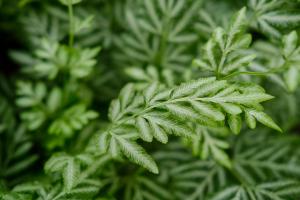Can You Use Vegetable Water to Water Plants?
When it comes to gardening, composting and watering are two essential factors that contribute to the health of plants. Using compost as a natural fertilizer is one of the best ways to nourish soil and promote the growth of healthy plants. Another question that often arises is whether it's possible to use vegetable water to water plants. Here's what you need to know.
What is Vegetable Water?
Vegetable water is the liquid that remains after cooking vegetables in water. It contains nutrients, minerals, and some vitamins present in the vegetables. This liquid is usually discarded and considered waste, but it has increasingly gained attention for its potential use as a natural watering solution for plants.
Is Vegetable Water Safe for Plants?
Yes, vegetable water is safe for plants, but only in certain circumstances. It depends on the type of vegetable water and the plants you want to water. For instance, if the vegetable water contains high levels of salt or spices, it may be harmful to some plants. Similarly, water used to boil starchy vegetables such as potatoes, may contain excessive amounts of starch, which can be detrimental to plants.
However, in general, vegetable water is a good source of organic matter and nutrients that can be beneficial for plants. The liquid can be used to water garden beds, seedlings, and house plants. Additionally, vegetable water can also be used as a natural pesticide to protect plants against insect infestations.
Benefits of Using Vegetable Water to Water Plants
One of the main benefits of using vegetable water to water plants is the addition of essential nutrients and minerals to the soil. The liquid contains vitamins and minerals, such as potassium, magnesium, and calcium, which are essential for plant growth. Additionally, the use of vegetable water can help reduce water consumption and promote sustainability in gardening.
Another advantage is that using vegetable water as a natural pesticide can help protect plants against certain pests without the use of harmful chemicals. For instance, using onion water can deter aphids and using garlic water can repel slugs.
How to Use Vegetable Water to Water Plants
The process of using vegetable water to water plants is relatively simple. First, make sure the water does not contain harmful substances, such as excess salt or spices. Let the vegetable water cool before using it, as hot liquid can shock plant roots and cause damage. Dilute the vegetable water with an equal amount of fresh water and apply to the soil around the base of the plant, taking care not to wet the leaves. If you're not comfortable using undiluted vegetable water, you can also use it to make compost or add it to watering cans that contain fresh water.
Conclusion
Overall, using vegetable water to water plants can be a sustainable and cost-effective way to nourish the soil and promote plant growth. However, it's important to consider the type of vegetable water and the plants you want to water before using this liquid as a watering solution. Following the recommended dilution process and avoiding harmful substances can help ensure the safety and effectiveness of vegetable water as a natural fertilizer and pesticide.

 how many times do yo...
how many times do yo... how many planted tre...
how many planted tre... how many pine trees ...
how many pine trees ... how many pecan trees...
how many pecan trees... how many plants comp...
how many plants comp... how many plants can ...
how many plants can ... how many plants and ...
how many plants and ... how many pepper plan...
how many pepper plan...
































